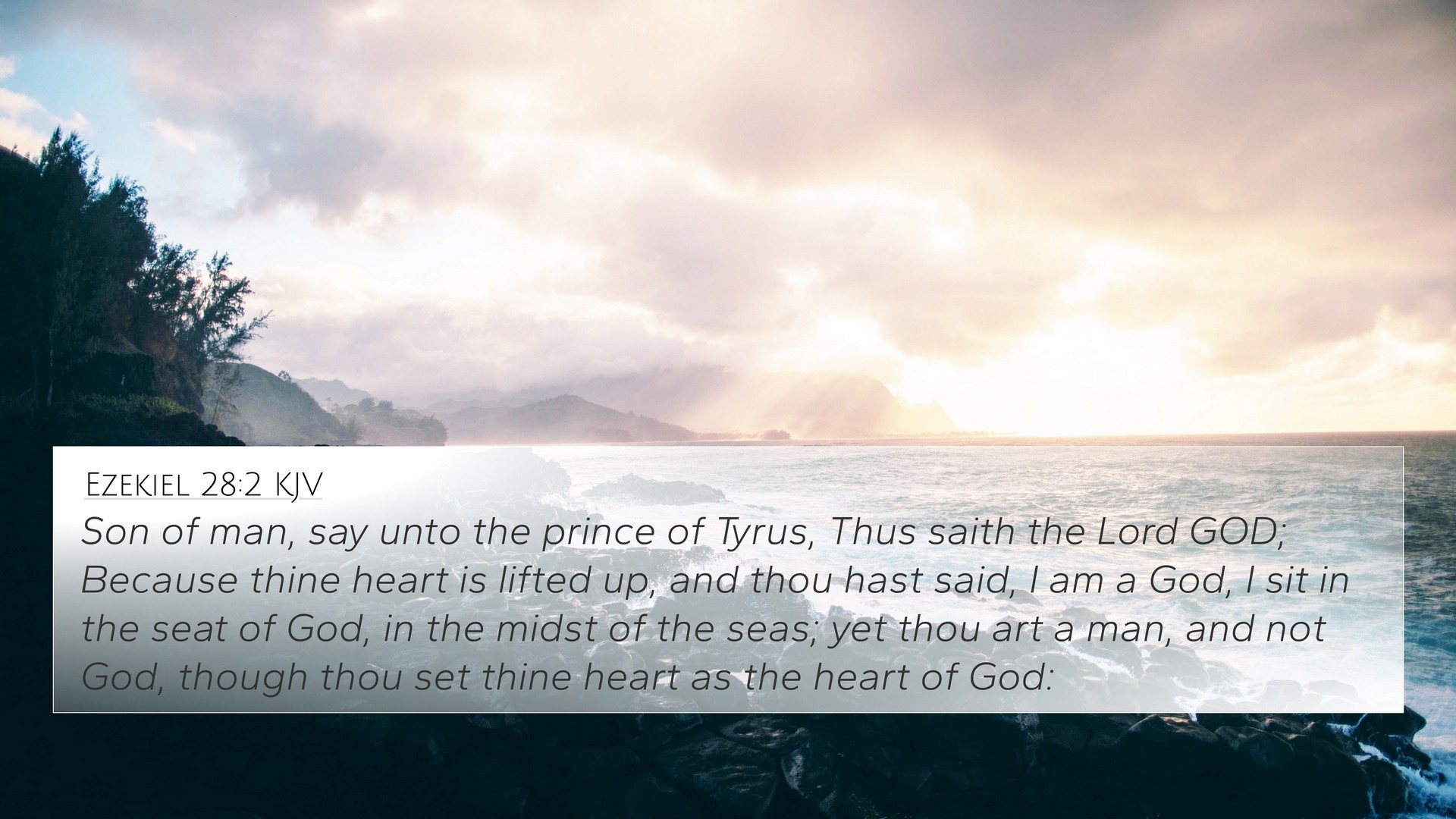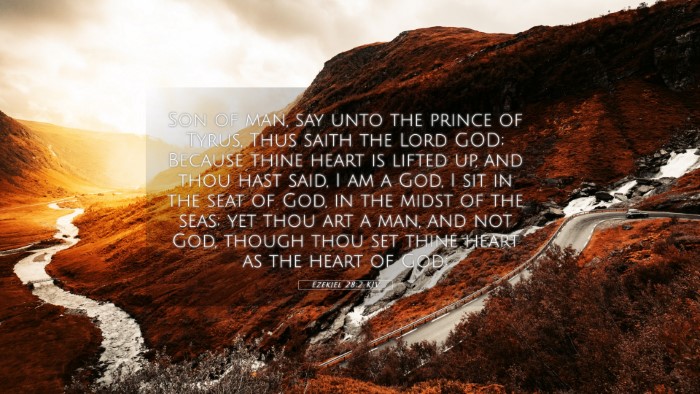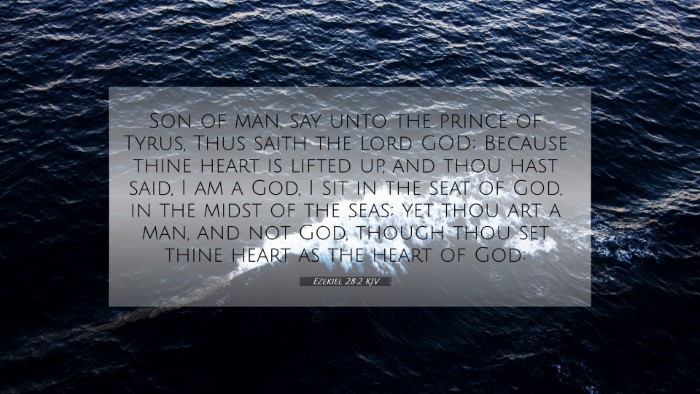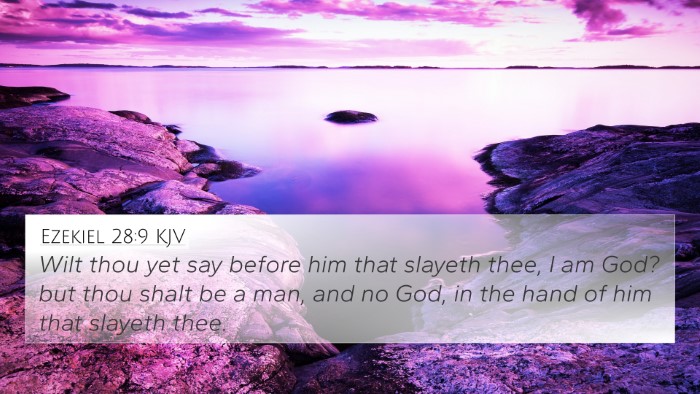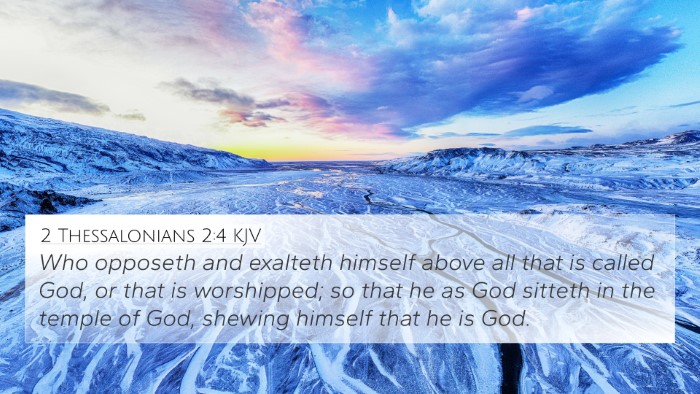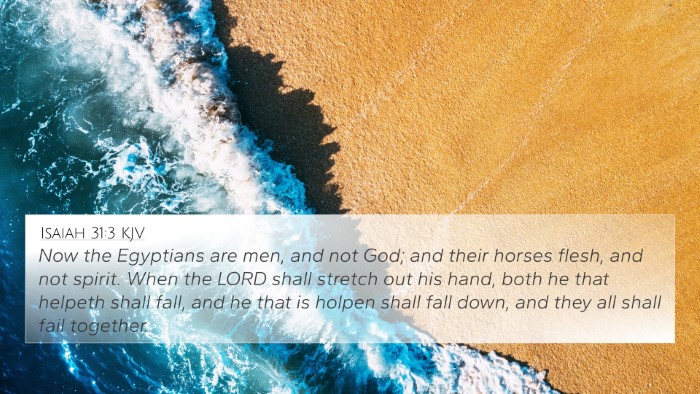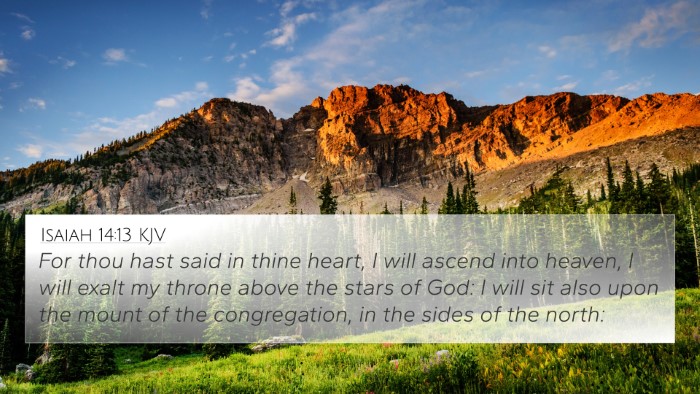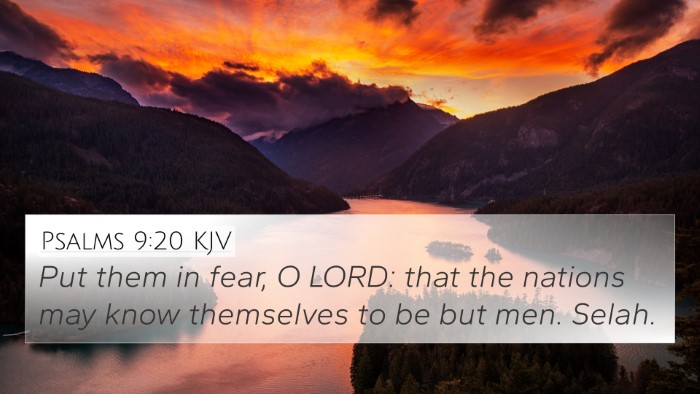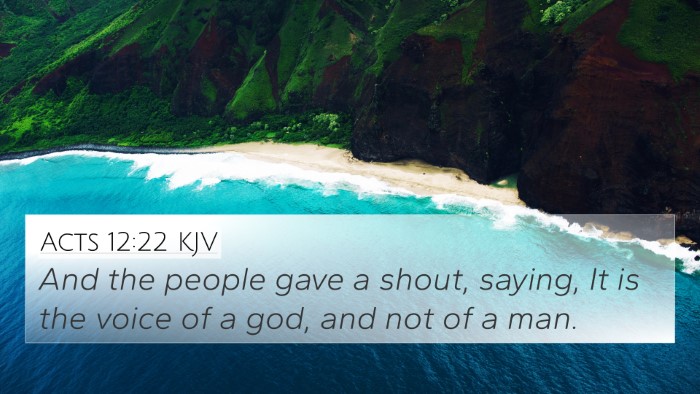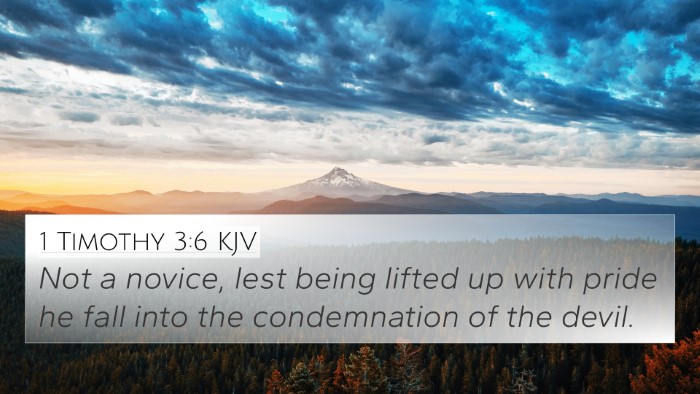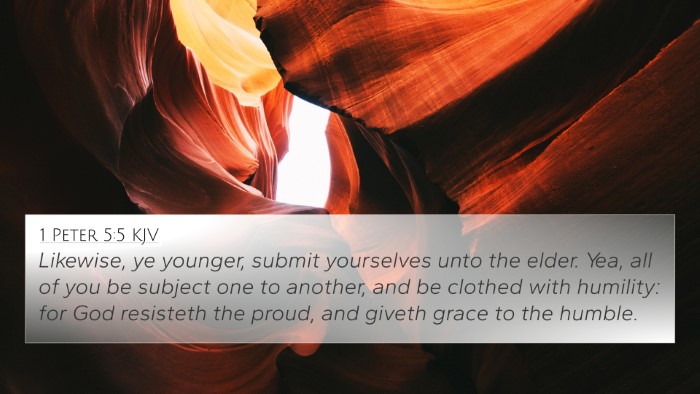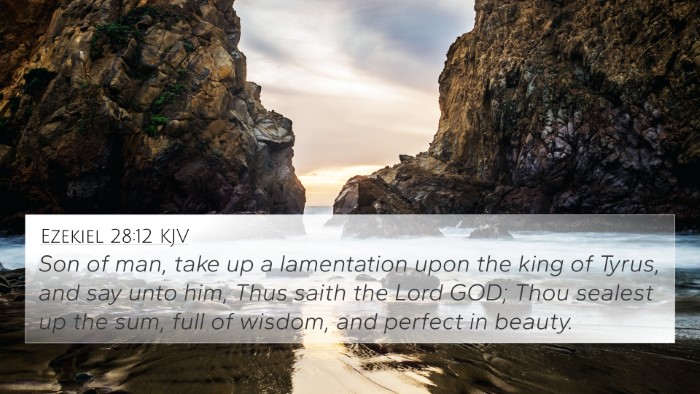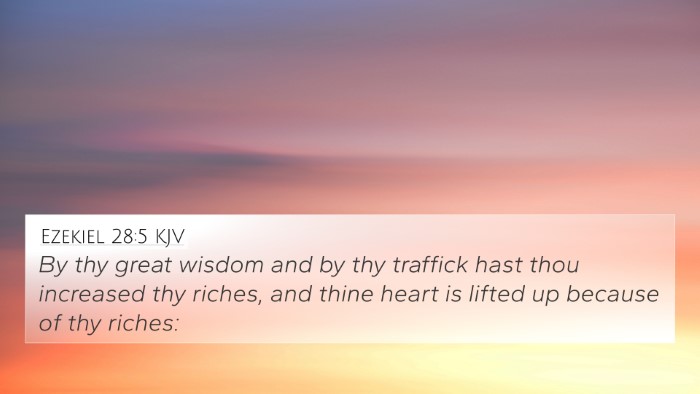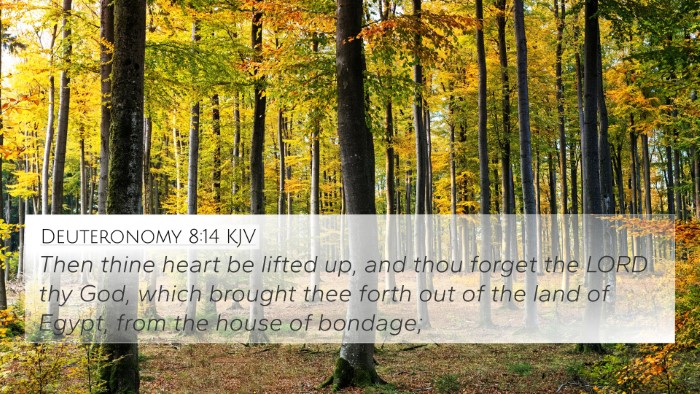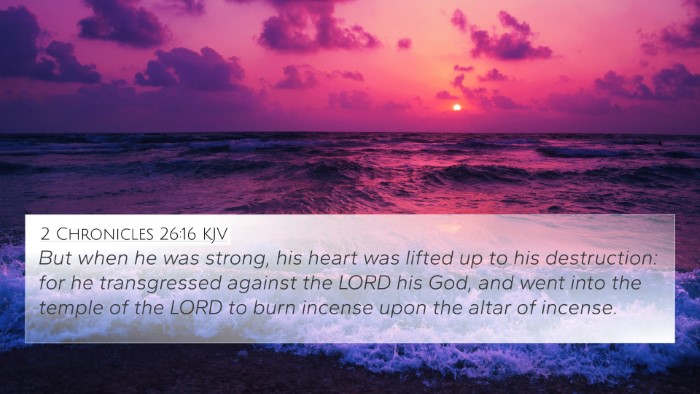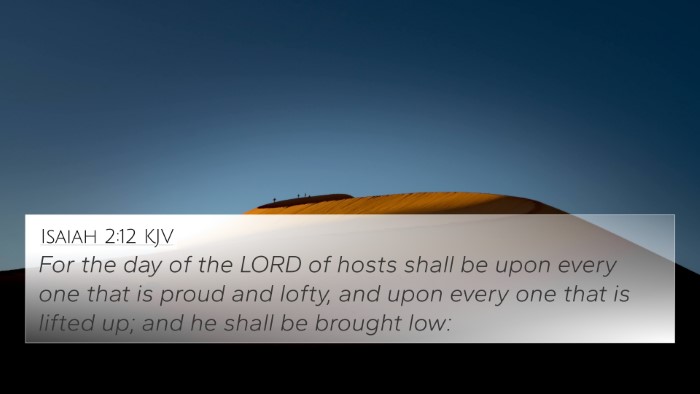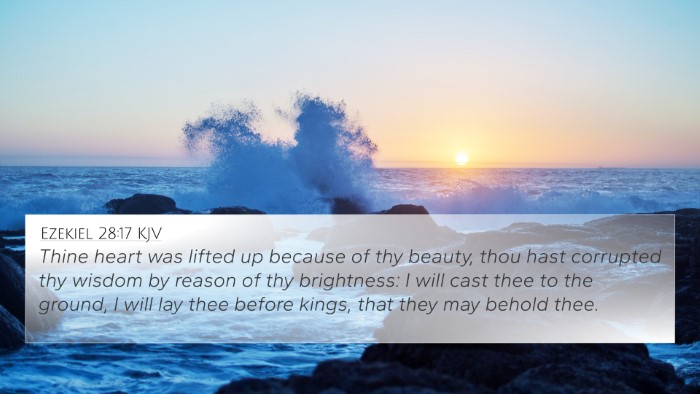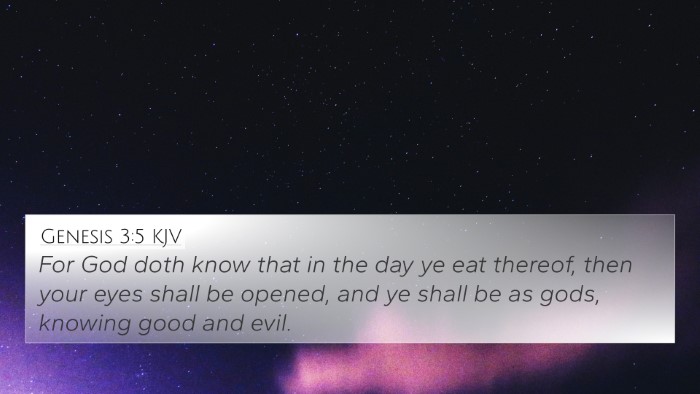Ezekiel 28:2 - Summary and Interpretation
Ezekiel 28:2 states: "Son of man, say unto the prince of Tyrus, Thus saith the Lord God; Because thine heart is lifted up, and thou hast said, I am a God, I sit in the seat of God, in the midst of the seas; yet thou art a man, and not God, though thou set thine heart as the heart of God." This verse addresses the pride of the Prince of Tyre and acts as a divine rebuke, emphasizing the distinction between God and man.
Understanding the Verse
The meaning of this verse highlights several key themes:
- Pride: The Prince of Tyre exemplifies human arrogance, attempting to elevate himself to the status of God.
- Divine Authority: God's proclamation reinforces that He alone holds the seat of power and authority.
- Human vs. Divine Nature: It contrasts human nature, with its inherent limitations, against the divine nature of God.
Commentary Insights
Here are some insights derived from renowned public domain commentaries:
- Matthew Henry: In his commentary, he indicates that the pride of Tyre’s ruler led to his downfall, suggesting that such arrogance is fundamentally at odds with God's supremacy.
- Albert Barnes: Barnes notes that the utterance “I am God” illustrates a complete disregard for true divinity, reinforcing the futility of human pride and aspirations to be like God.
- Adam Clarke: Clarke elaborates on the metaphor of the heart lifted up, explaining that true humility before God is essential for a leader, contrasting it sharply with the Prince’s self-assertion.
Cross-References
This verse connects with several other biblical passages, which elaborate on similar themes of pride, authority, and divine judgment:
- Isaiah 14:13-14: Discusses the fall of Lucifer, who also aspired to be like God.
- Ezekiel 28:10: Direct reflection of judgment upon the prideful.
- Jeremiah 49:16: Warns against pride, likening it to the fall from grace.
- Proverbs 16:18: "Pride goes before destruction, and a haughty spirit before a fall."
- James 4:6: "God resists the proud, but gives grace to the humble."
- Luke 18:14: "For everyone who exalts himself will be humbled, and the one who humbles himself will be exalted."
- Daniel 4:37: About Nebuchadnezzar’s ultimate acknowledgment of God's sovereignty.
Thematic Connections
This verse can be used in studies about:
- The dangers of pride: The consequences of exalting oneself above God's authority.
- Leadership and humility: How leaders are called to recognize their place before God.
- Divine judgment: Understanding how pride leads to eventual judgment from God.
Practical Applications
The insights from Ezekiel 28:2 can be applied in various practical ways:
- Self-Reflection: Encouraging personal examination of one’s own prideful attitudes.
- Leadership Models: Implementing and emphasizing humility among leaders.
- Biblical Teaching: Using this verse in sermons or studies about the nature of God and human limitations.
Conclusion
The verse in Ezekiel serves as a crucial reminder of God's ultimate authority and the dangers of human pride. Through understanding this verse alongside related scripture, readers can deepen their comprehension of Biblical themes surrounding pride, divine authority, and the consequences of exalting oneself above God's rightful position.
Additional Bible Study Resources
If you are looking to delve deeper into cross-referencing Biblical texts, consider utilizing the following tools:
- Bible concordances for contextual referencing
- Cross-reference Bible study materials for comparative analysis
- Bible reference resources for thematic connections
FAQs
What verses are related to Ezekiel 28:2?
As noted, there are several verses that relate thematically, including Isaiah 14:13-14 and Proverbs 16:18.
How do Ezekiel 28:2 and Isaiah 14:14 connect?
Both verses illustrate the destructive consequences of pride and the ambition to rival God's authority.
What lessons can we learn about pride from Biblical texts?
Many scriptures warn against pride, highlighting its destructive nature and contrasting it with the virtue of humility.
